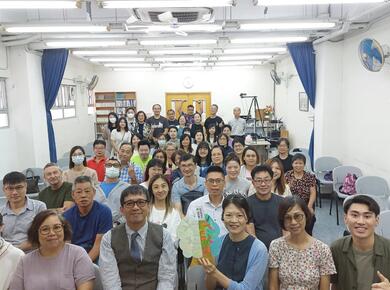Posted: August 5, 2024
Brokenness into glory
Kintsukuroi, a traditional Japanese technique, involves repairing ceramics with lacquer and gold, embracing damage as part of an object’s history instead of concealing or discarding it.
This process entails identifying broken areas and delicately mending them with precious gold, resulting in unique pieces that blend brokenness with magnificence, elevating its value and beauty.
In the realm of international relations, unfairness and injustice can escalate into conflicts and wars, fracturing families due to lack of respect and consideration. By engaging in dialogue akin to a potter assessing broken angles, and addressing wounds with love, understanding, tolerance, and compassion, relationships can be restored, and peace can prevail.
The transformation of brokenness into glory signifies a shift where imperfections no longer denote flaws but rather symbolize growth and resilience. The incorporation of gold highlights the beauty within brokenness, enhancing its value and significance.
During Peace Sunday, a symbolic act involving a paper tree was carried out, where individuals identified their “potters” whom they would turn to for support during challenging times. This fostered a culture of love and kindness among participants.
Despite the existence of conflicts, divisions and injustices globally, there remains a pathway toward peace and healing by embodying the role of the potter in the hands of the Father, treating others with love and compassion akin to gold filling cracks to enhance beauty and wholeness.
Individuals can contribute to a more harmonious and interconnected world.
Prayer
Dear Heavenly Father,
Through your gentle touch, we can experience your precious healing. Our imperfections are treated with special honour.
Father, please help us to be sensitive to people’s wounds. Through your grace and gifts, may we embody your love, empathy and compassion.
We are willing to meet the needs of others.
Grant us the courage to embrace our brokenness, receive healing and reveal your glory through our wounds.
Thank you, Father. You are Jehovah Rapha. Your healing brings us unity and peace.
In Jesus’ name, we pray. Amen.
—Wincy Wan is a member of the Peace Commission. She is a pastor of a Mennonite church in Hong Kong.
Clay in God’s hands

Kintsukuroi, the practice of creating or recreating from broken pottery led my thoughts toward Jeremiah who was sent by the Lord to go to a potter’s house.
When Jeremiah got there, he noticed that “Whenever the object of clay which he was making turned out badly in his hand, he tried again, making of the clay another object of whatever sort he pleased.”
Then the message of God was: “Can I not do to you, house of Israel, as this potter has done? says the LORD. Indeed, like clay in the hand of the potter, so are you in my hand, house of Israel.” (Jeremiah 18:4,6 NAB)
The Lord’s message to Jeremiah is that God does whatever God wants, sometimes according to a human’s attitude.
Unfortunately, because of our stubbornness, we often invert roles, considering ourselves God and God the clay.
That’s what we can understand in Isaiah 29:15-17: “Your perversity is as though the potter were taken to be the clay: As though what is made should say of its maker, “He made me not!” Or the vessel should say of the potter, “He does not understand.”
Somehow the apostle Paul shared this idea when he said: “Or does not the potter have a right over the clay, to make out of the same lump one vessel for a noble purpose and another for an ignoble one? What if God, wishing to show his wrath and make known his power, has endured with much patience the vessels of wrath made for destruction?” (Romans 9:21-22).
Let’s give to the Lord the direction of our lives.
Prayer
Oh Lord, break in me what is not yours and rebuild me according to what you want me to be, in order to glorify your name!
—Kari Traoré is a member of the Peace Commission. He is a pastor of a Mennonite church in Burkina Faso.


Join the Conversation on Social Media
FacebookTwitterInstagramFlickrYouTube